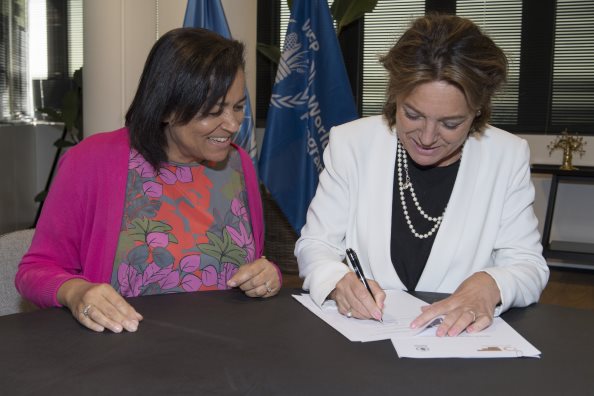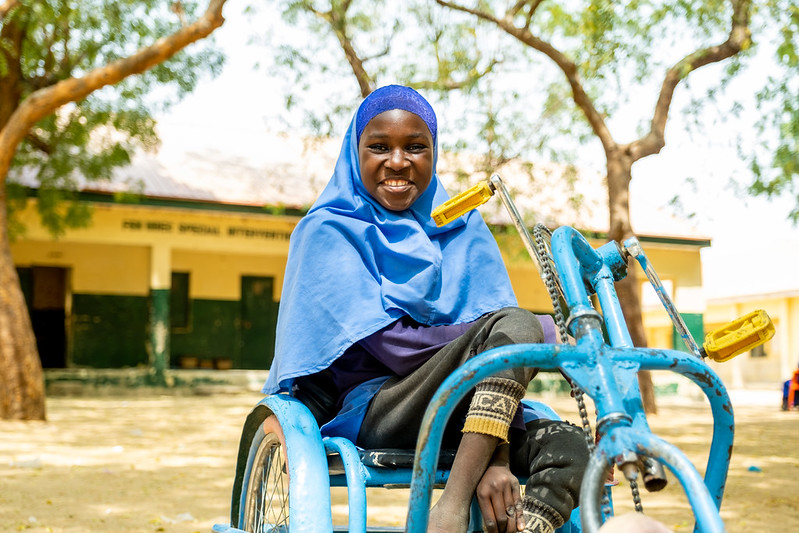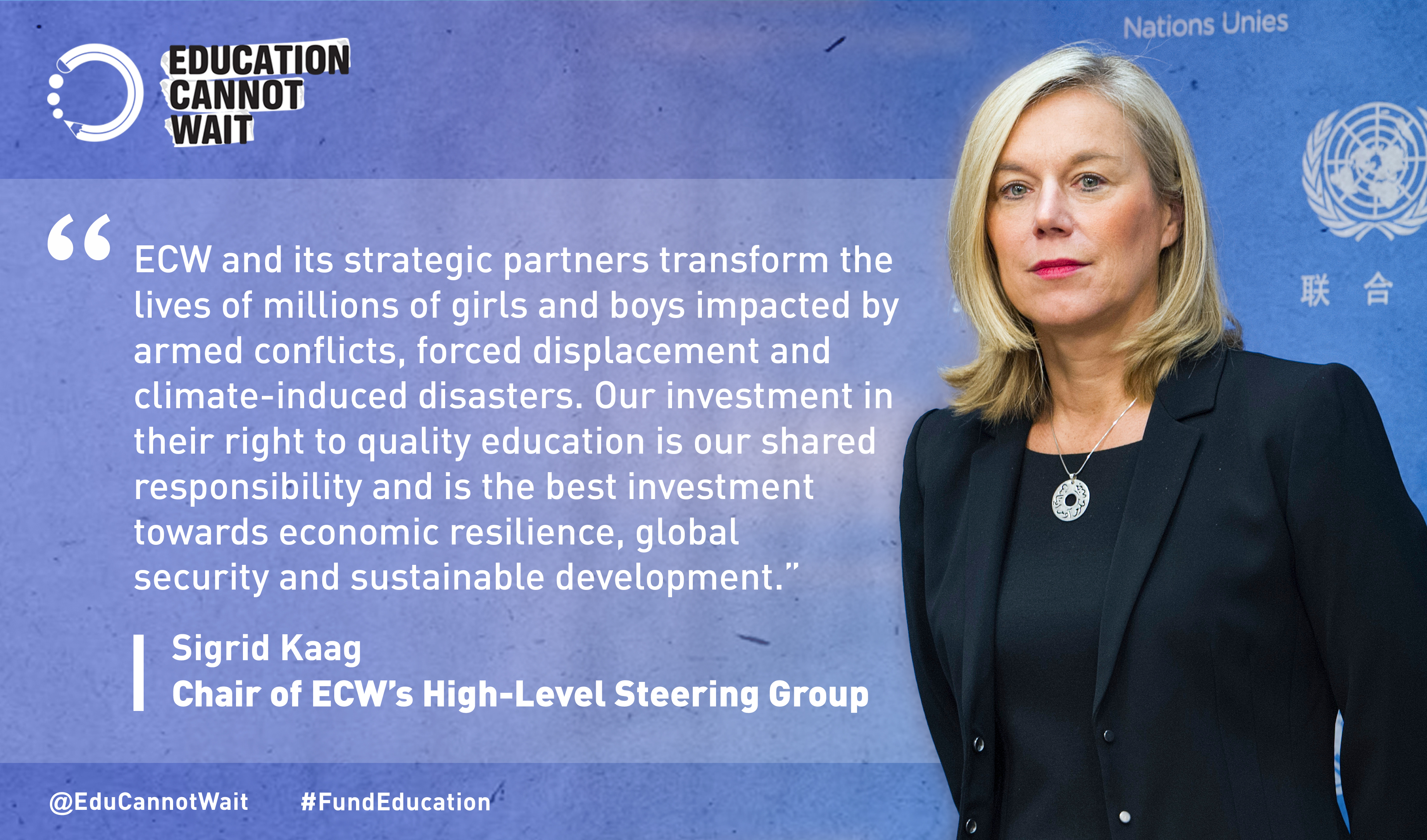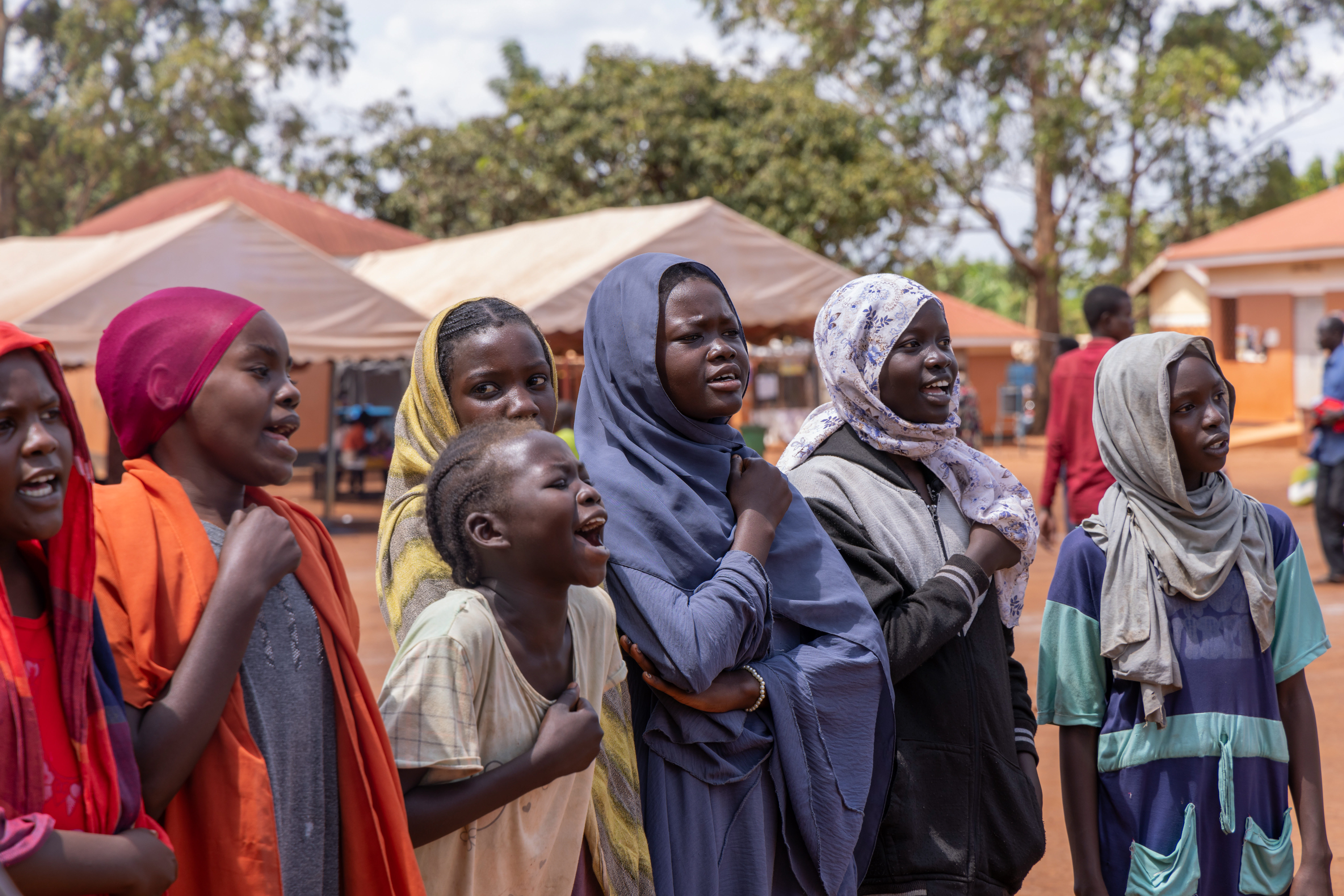Press Release: World Food Programme and Education Cannot Wait Team Up to Reach Vulnerable Children and Youth in Emergencies

The United Nations World Food Programme (WFP) and Education Cannot Wait (ECW), today embarked on a strategic partnership to ensure children and youth in emergencies do not miss out on the education opportunities that will shape their futures.
WFP Assistant Executive Director, Valerie Guarnieri, and ECW Director, Yasmine Sherif, today signed a Memorandum of Understanding at WFP’s headquarters in Rome, to strengthen joint programming and joint advocacy at a global level.
There are currently 73 million children living in extreme poverty who attend school but are missing out on the school feeding, health and nutrition programmes that are essential for their ability to learn. WFP and ECW are committed to address this through an integrated approach that tackles the multiple needs of each child learner.
“Simply put, sick children cannot attend school and hungry children cannot learn,” said Valerie Guarnieri. “It is essential we invest more in the health and nutrition of young learners, particularly girls. We need to assist governments and communities to reap the full benefits of their important investments in education. Through our new partnership with Education Cannot Wait we will work collectively to meet the nutrition and education needs of children who risk being left behind,” said Guarnieri.
Situations of armed conflict, forced displacement, natural disasters and protracted crises around the world are disrupting the education of some 75 million children and youth. In such contexts, families often lack the means to feed their children or send them to school. While missing a meal can have a physical impact on a child, chronic food insecurity impacts a child’s learning and their well-being. The new WFP-ECW partnership will help lift some of these barriers, enhancing access to quality, inclusive education for vulnerable children in emergency and crisis settings.
“For many children and youth in crisis-affected countries, a meal at school may be the only food they eat all day and can be an important incentive for families to send and keep girls and boys in school. It is also essential for a young person to actually focus and learn,” said Yasmine Sherif.
“Our partnership with the World Food Programme will help improve learning outcomes, retention and performance for children reached through Education Cannot Wait’s investments. Together with our partners, we must work towards responses that encompass the whole well-being of a child, creating conducive and protective learning environments.”
In its first two years of operation, ECW has reached more than 1.5 million children and youth caught in crises with education and has investments in 32 countries. Half of the beneficiaries are girls and 51 per cent of the children and youth reached are refugees or internally displaced. Education Cannot Wait and partners call on world leaders, private sector and philanthropic organizations to urgently mobilize US$1.8 billion by 2021 to reach 9 million children and youth caught in crises annually. Along with partners, the Fund has already mobilized over half-a-billion dollars (US$560 million) since its inception.
School feeding programmes in crisis contexts are a highly effective tool to address children’s diet, nutrition, education and security needs as part of a wider school-based package. These safety nets help provide children with a sense of normalcy and promote social cohesion and stability during crises.
Over the last 50 years, WFP has scaled-up school feeding programmes in more than 100 countries to ensure that children have access to nutritionally adequate food to support their enrolment, attendance and learning in schools. In 2018, WFP provided school meals or snacks for 16.4 million in 64,000 schools – of whom 3.4 million are children in emergencies and protracted crises. Education Cannot Wait’s investments have already supported school-feeding programmes in Somalia, Uganda and Yemen, with plans to expand to additional countries through the new partnership.
Under the new agreement, WFP and ECW will engage in joint programming at the country and regional levels. In particular, WFP and ECW are conducting joint missions in priority countries to identify challenges related to school feeding as a driver of increased enrolment and continuity in education. The two organisations will also work together globally to inspire greater political commitment and financial resources for school-based interventions, that address children’s education, nutrition and health needs in emergencies and protracted crises.
This joint news release is also available on WFP’s website.
The United Nations World Food Programme – saving lives in emergencies and changing lives for millions through sustainable development. WFP works in more than 80 countries around the world, feeding people caught in conflict and disasters, and laying the foundations for a better future.
Follow us on Twitter @wfp_media
Education Cannot Wait (ECW) is the first global, multi-lateral fund dedicated to education in emergencies. It was launched by international humanitarian and development aid actors, along with public and private donors, to address the urgent education needs of 75 million children and youth in conflict and crisis settings.
Follow us on Twitter: @EduCannotWait
Additional information is available at www.educationcannotwait.org and www.act4educationincrisis.org
For more information please contact:
Frances Kennedy WFP/Rome, Tel. +39 06 6513 3725, Mob. +39 346 7600806
Steve Taravella, WFP/Washington, Tel. +1 202 653 1149, Mob. +1 202 770 599
Anouk Desgroseilliers, adesgroseilliers@educationcannotwait.org, +1-917-640-6820
Kent Page, kpage@unicef.org, +1-917-302-1735
For Press Inquiries:
Anouk Desgroseilliers:
adesgroseilliers@un-ecw.org
+1-917-640-6820
Kent Page:
kpage@unicef.org
+1-917-302-1735



